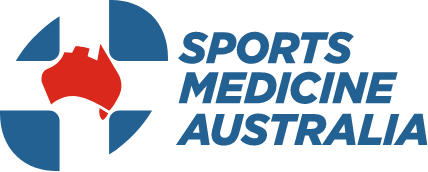
Last night Andrew Gardner took over our social media channels and answered viewers questions about all things concussion! In case you missed it, we’ve put together a recap of the concussion questions viewers wanted to know more about!
Q: What are the first symptoms that signal you’ve sustained a concussion?
AG: Concussions vary by individual and within an individual who may experience multiple concussions. Very rarely does a concussion presents the same. The most common post-concussion symptom is headache.
Q: Following the injury should athletes get referred directly to specialists in concussion or go through the GP? How do GP’s know who to refer to? How long is the recovery process?
AG: This is a good question and the response will vary depending on your location. It is ideal to be seen by a specialist with expertise in concussion but that is not possible in every town around the nation. GPs do a wonderful job, although many do not necessarily see a lot of patients experiencing concussion. It is very hard to provide individual prognosis advice as there are so many variables, and no concussion presents the same. There are some groups who may take longer to recover. Most adults recovery in 10-14 days, most kids can take up to a month, but this is not a hard and fast rule.
Q: What are the most up to date best practices for medical attention following a concussion? Should any concussion be seen in ER, or only ongoing vomiting/confusion/unequal pupil size etc.
AG: The Concussion Recognition Tool (CRT) is a very good reference point that outlines “red flags” for presenting to an ER. But if in any doubt it is always best to seek medical care and present.
Q: Andrew, are there any long-term cognitive impairments associated with soccer heading and should headgear be made mandatory for soccer players or specifically, youth soccer players?
AG: This is a topic of interest for many researchers around the world. The literature at present is mixed, and there are a wide range in the quality of the study designs employed to investigate this topic. Headgear does not prevent concussion, so it would not be a useful intervention for footballers (soccer players) to wear headgear.
Q: Andrew, will players be at more risk of injuries and concussion due to short training and season this year?
AG: This is very difficult to predict. It is a reasonable hypothesis, but we will not know until the evidence is presented when they get back to the field. It is hard for the players to go from no contact work for such a long period and ramp up their training quickly to get back to the elite level performance we all expect of them.
Q: Can I still get a concussion with a helmet on?
AG: Simply answer to this is yes. The forces applied to the head are still transferred through the skull and into the brain, which will move around inside the skull and potentially still cause a concussion, even if you are wearing protective equipment.
Q: Is there a demographic or group more prone to getting a concussion?
AG: Vulnerability to sustaining a concussion, the research is mixed. Some say younger athletes who are underdeveloped may be at greater risk. In terms of slow to recover, children tend to take longer than adolescents and adults. Individuals with ADHD, learning disorder and mental health concerns tend to also take longer to recover.
Q: How many concussions can you incur until it will have a permeant effect to your brain?
AG: This is unknown, and again there will be individual differences. It is important to manage every concussion well and not to return too early to contact. Accumulating multiple concussions can certainly be harmful to some athletes and seeking medical advice from a concussion expert is strongly recommended.
Q: Truth or myth: when someone has a concussion they cannot go to sleep after?
AG: It is important that if a concussed individual goes to sleep shortly after a concussion, they should be very closely monitored for at least 4 hours and for kids for the entire night.
Q: Can strengthening your neck help prevent concussion?
AG: There is some evidence that conditioning, including neck strength can reduce the risk of concussion. For example, the rugby union “Activate” program has demonstrated success in reducing the incidence of injuries, including concussion.
